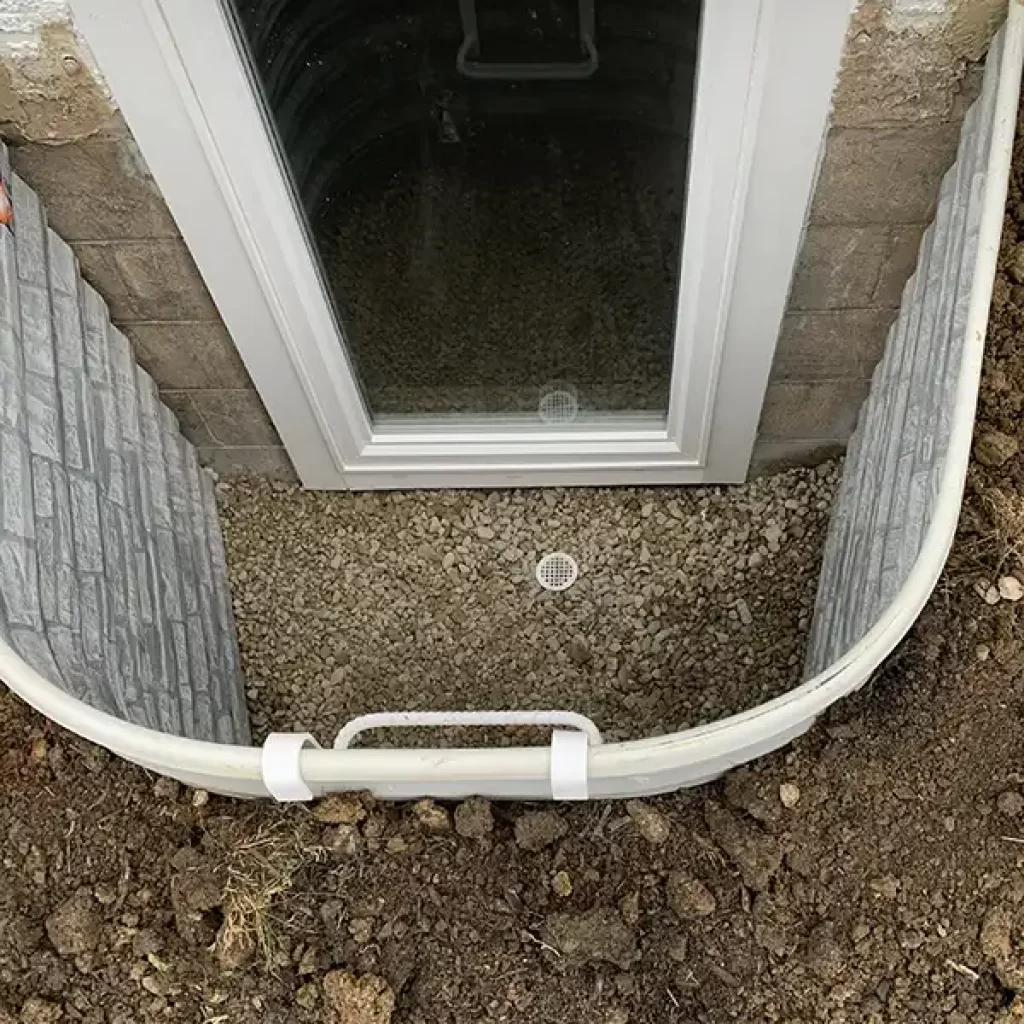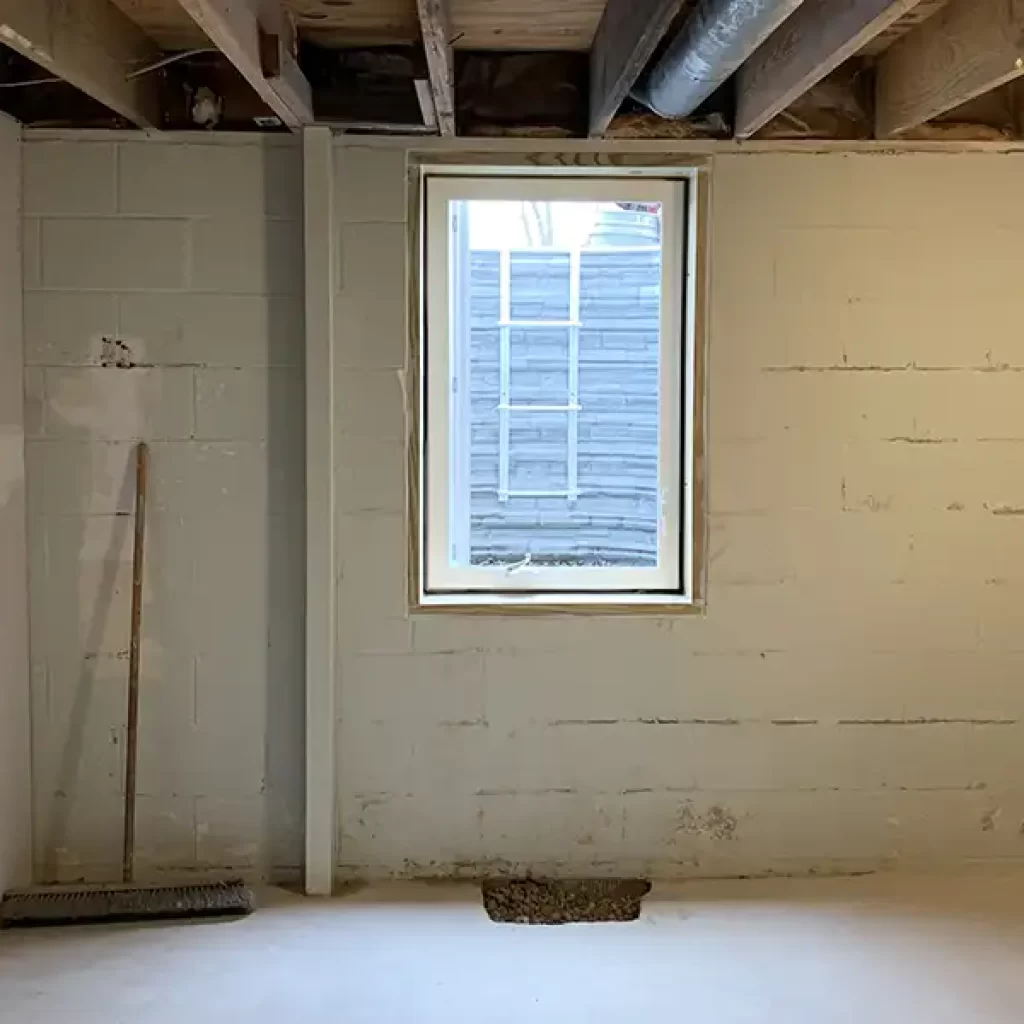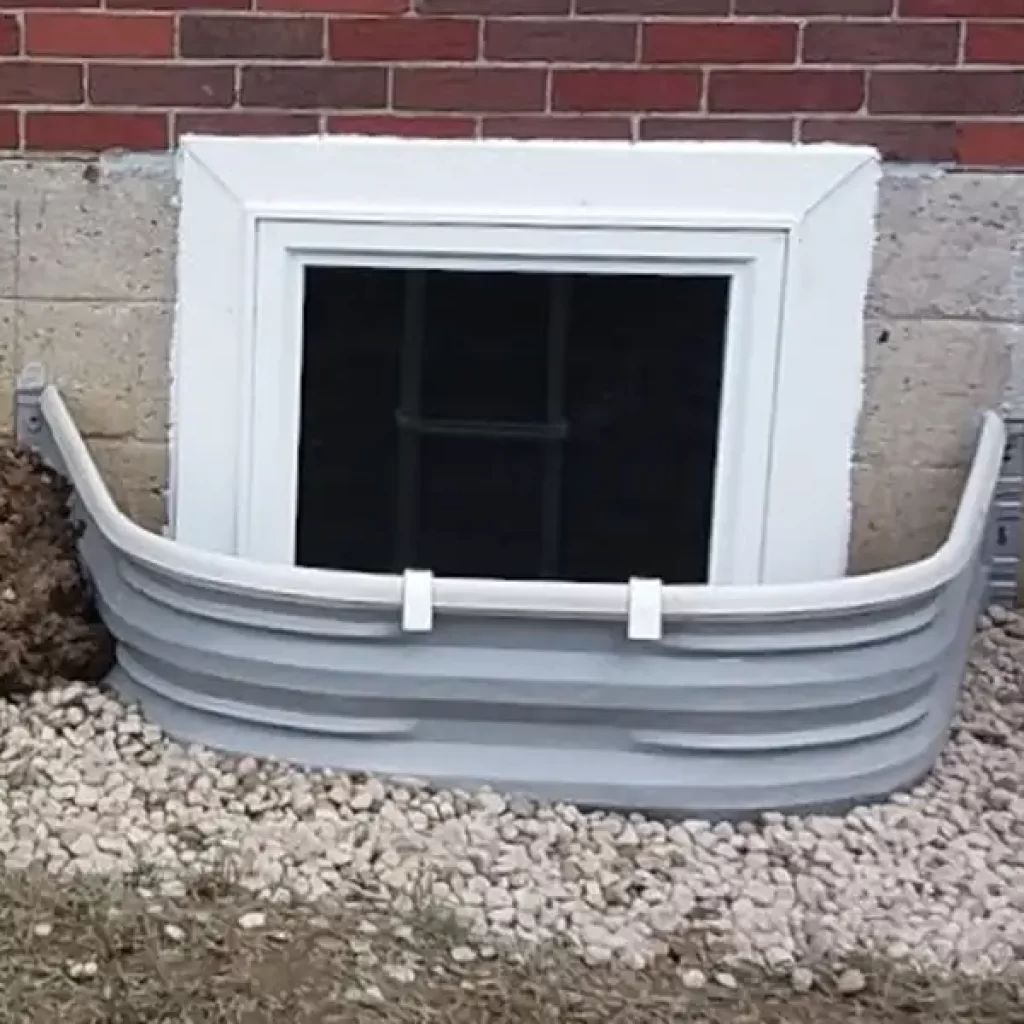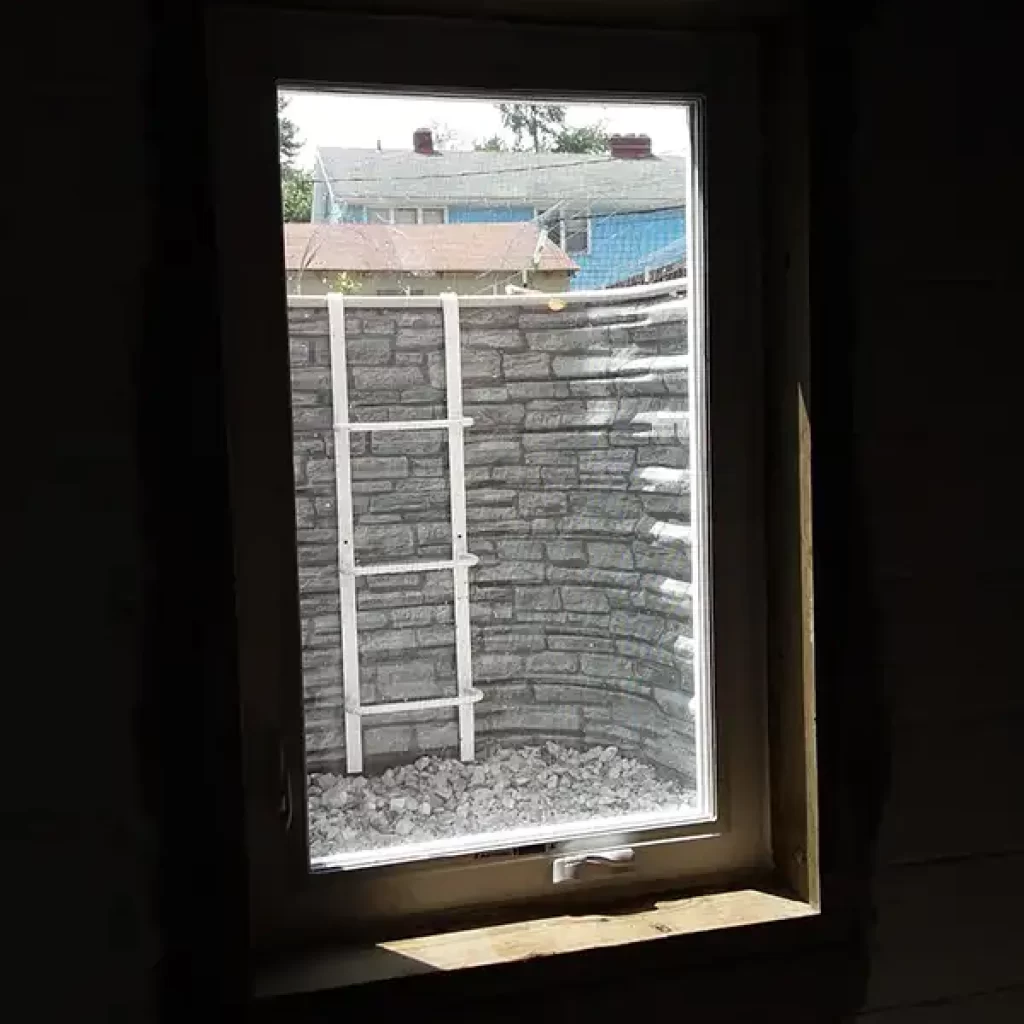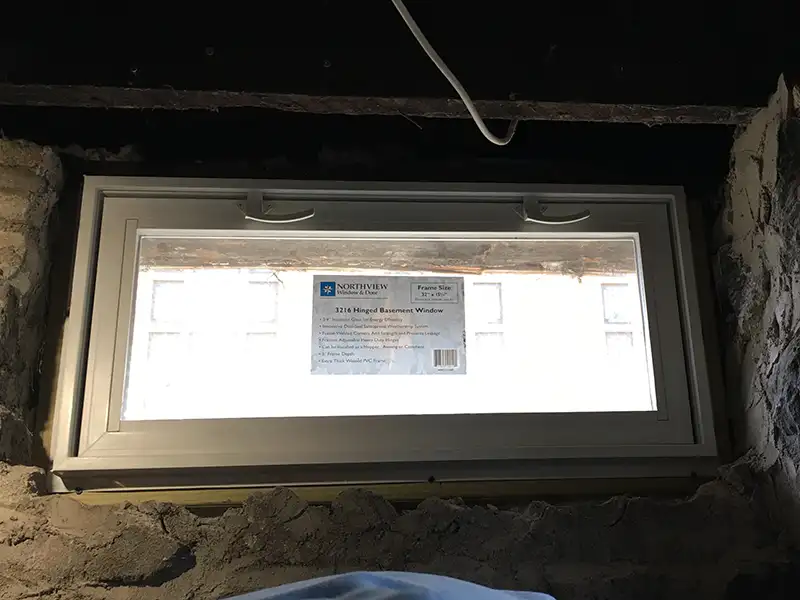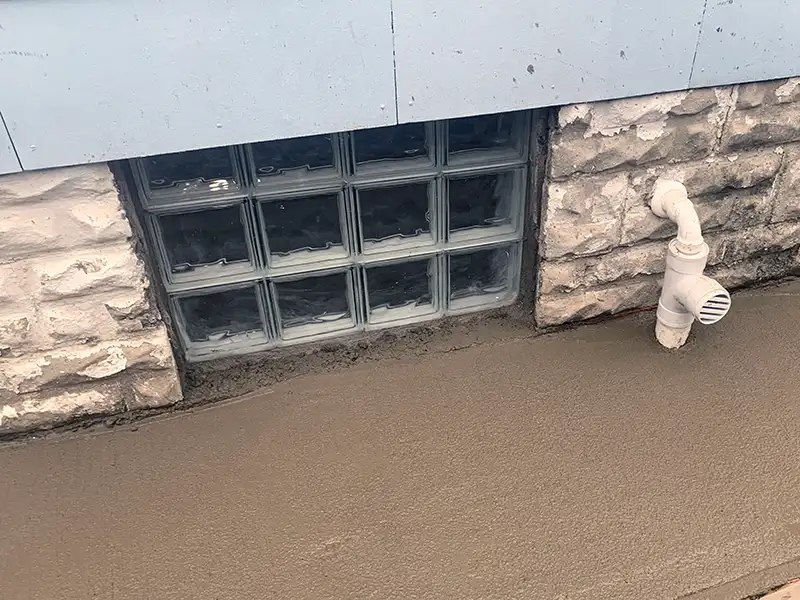Basement Window Installation
For basement window installation, homeowners can choose from several options that meet safety and aesthetic needs. Egress windows are essential for emergency escape, requiring specific dimensions and heights. Glass block windows provide privacy and security, though they’re labor-intensive to install and require regular maintenance. Custom windows can match any design preference and add value to the home if they comply with safety standards. Each type has its benefits, from improved ventilation to enhanced security, making the right choice essential for both beauty and functionality. Understanding these options can lead to a safer and more appealing basement space.
Egress Walkout / Emergency Escape
When it comes to basement safety, egress walkout windows provide an important emergency escape route that complies with stringent building codes. These windows are vital for guaranteeing a safe exit during emergencies like house fires. To meet egress requirements, the window must have a minimum opening width of 20 inches and a height of 24 inches, with the net clear opening being 5.7 square feet above ground or 5.0 square feet at ground level. The sill height should not exceed 44 inches from the floor, making it accessible for occupants.
Several window types fulfill egress requirements, each offering unique benefits. Casement windows, hinged at the side, provide excellent ventilation and are easy to open fully. Sliding windows, with two sashes, save space and allow for substantial openings. Double-hung windows offer a traditional style, while awning windows, hinged at the top, can be opened even during light rain.
Egress walkout windows come with essential safety features, such as ease of operation without special tools and compliance with local building codes. Their presence enhances overall home safety and can lead to reduced insurance premiums. Additionally, they improve ventilation, contributing to better indoor air quality and reducing musty odors in basements.
Installation costs for egress windows can vary, influenced by the type of window, the need for excavation, and labor expenses. However, these costs are often offset by the increased home value and marketability. Homes with proper egress windows can command higher resale prices, making the investment worthwhile for homeowners. Fundamentally, egress walkout windows not only guarantee safety but also enhance the functionality and value of the home.
Glass block
Glass block windows, often found in older homes, offer privacy and light but lack the safety features of modern egress alternatives. These windows, known for their durability and distinctive aesthetic, have been a popular choice for basements due to their ability to diffuse natural light while providing a degree of security. However, it’s important to evaluate their benefits against the need for safety and compliance with current building codes.
One of the main glass block benefits is their ability to enhance privacy without sacrificing natural light. The frosted or patterned glass blocks obscure the view from outside, making them an excellent choice for areas where privacy is paramount. Additionally, these windows are highly resistant to break-ins, adding an extra layer of security.
Despite these advantages, there are several glass block alternatives to take into account, especially for those prioritizing safety and egress compliance. Modern alternatives such as frosted egress windows or decorative glass windows can offer similar aesthetic and privacy benefits while meeting emergency escape requirements.
Glass block installation can be more labor-intensive compared to other window types. It typically involves setting each block into a frame with mortar or specialized adhesive, making it a task best suited for professionals. Regular glass block maintenance is also essential to guarantee the longevity of the installation, including checking for cracks and cleaning the mortar joints to prevent water infiltration.
To sum up, glass block windows offer unique **aesthetics** and practical benefits, but homeowners should carefully assess their specific needs, especially regarding safety and compliance with modern building codes.
Benefits: Privacy, light diffusion, security.
Alternatives: Frosted egress windows, decorative glass windows.
Maintenance: Regular checks for cracks, cleaning mortar joints.
Custom
Homeowners often opt for custom basement windows to perfectly match their unique aesthetic preferences and functional needs. Custom windows offer a tailored approach, guaranteeing that each window complements the home’s design while enhancing the basement’s usability. By choosing custom options, homeowners can maximize natural light, improve ventilation, and adhere to specific safety regulations.
One of the main benefits of custom basement windows is the ability to select from various window styles. Whether it’s casement, sliding, or awning windows, each style offers distinct advantages. Casement windows, for instance, provide excellent ventilation options, while sliding windows can be a space-saving solution. Custom designs allow homeowners to mix and match styles to achieve the perfect balance between form and function.
Installation costs for custom basement windows can vary considerably. Factors such as the complexity of the design, the materials used, and the labor involved all play a role in determining the final price. While custom windows may be more expensive upfront compared to standard options, the investment can be worthwhile. Enhanced aesthetics, better natural light, and compliance with safety regulations can ultimately increase a home’s value.
Safety regulations are an essential consideration when installing custom basement windows. Egress windows, for example, must meet specific size and operational requirements to guarantee they provide a safe escape route in case of emergencies. Custom windows can be designed to meet these stringent standards, offering peace of mind alongside aesthetic appeal.


